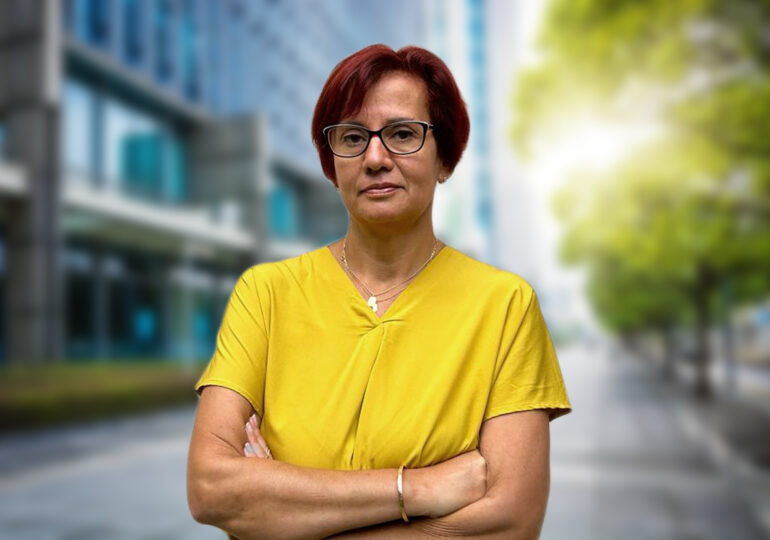That Bucharest needs a new law to unlock the suffocated city is evident and not new. Having 6 cities in one, with 7 uncoordinated and often politically rival mayors, is a sure path to failure.
It is true that in Bucharest construction has been carried out frantically and haphazardly, without any urban planning rules, and that the general mayor’s office is constantly forced to rely on the government.
But it is not at all clear, on the contrary, if the referendum proposed by Nicușor Dan answers these questions.
What do the two questions formulated by the general mayor propose?
In short, total centralization regarding construction permits in the hands of the mayor and political arbitrariness in the distribution of the city's funds.
As the question sounds, the CGMB, in fact, the political party councilors, will distribute the money as they see fit, without any criteria. It is a possibility that eventual criteria will appear later, for example, as Ciprian Ciucu proposes, the money to cover the competencies of each municipality. For now, they do not appear.
Ovidiu Voicu, executive director of the Center for Public Innovation, detailed the adverse effects of the questions here.
The third question proposed by PSD is an electoral populist ballast because nothing prevents the majority in the Council from proposing an anti-drug program even now. PSD also joins the referendum photo op on a topic that benefits them in Bucharest.
In fact, this is one of the major problems with this referendum – the electoral manipulation of topics of real interest, which are thus overshadowed by the pressure of political emotion of the moment and personalization.
Nicușor Dan strikes while the iron is hot and tries to capitalize on the maximum electoral bonus of winning the elections, with a discourse tinged with blackmail towards anyone who opposes in any way: "the citizens will judge us all with the stamp in hand."
In addition, he is facing the final decision of the High Court of Cassation and Justice (ICCJ) in the case of incompatibility established by the National Integrity Agency (ANI), a verdict already postponed twice and now scheduled for a new pronouncement on Tuesday, just one day after the referendum vote.
Sure, after winning at the Court of Appeals, Nicușor Dan has the first chance in the ANI appeal, but that does not mean that a decision that could remove him from the mayor's seat and impose a 3-year ban on holding public office is excluded.
And if it were to happen, Nicușor Dan has every reason to want to leave as a victim and turn the moment into an electoral springboard for future elections, not local, but presidential.
The parties no longer know how to flatter him, hoping to gain some of the mayor's voters. The strokes are often ridiculous: PNL had a candidate in the Capital's elections, and Sebastian Burduja was extremely critical of the current mayor.
Ms. Clotilde Armand, until now the mayor of Sector 1, a candidate for a new term in June, pleads for the abolition of the sectors. If she had won in June, would she have been primarily focused on the referendum issue?
The entire process reeks of hard-to-ignore hypocrisies
To maximize the political effect, Mr. Nicușor Dan actually proposes a merger. He himself used this word. And he is applauded precisely by those who at the beginning of the year demonized, rightly so, the merger decided by PNL and PSD. This is the good merger, that was the bad merger.
Good or bad, it will complicate the first round of the presidential elections in Bucharest, with another set of polling stations and 3 more ballots. The complications of the merger on June 9 were intensely discussed and criticized.
To avoid them, the general mayor asks the government for a modification of the electoral legislation through an emergency ordinance, one month before the elections. How much scandal has there been so far for changing the rules during the game and how many times has the violation of the rules of the Venice Commission been invoked?
The Venice Commission especially rejects the contamination of electoral issues, precisely what will happen now. In Bucharest, the first round of the presidential elections will become a new election for the general mayor. We will no longer seriously discuss presidential issues or the proposals subject to public consultation.
And the fact that the referendum itself has no legal power. Its transformation into legislation must be done by Parliament after the elections, by the new majority.
The modification of legislation through an emergency ordinance in the direction of the merger requested by Nicușor Dan – common sections for both elections – was previously done by the Cioloș Government in 2016 for a local referendum in Oradea. And the Decision of the Constitutional Court of Romania no. 361 of May 26, 2016 declared the emergency ordinance unconstitutional because the exceptional situation could not be justified.
In fact, the correct key to interpreting the Bucharest referendum lies in other questions, which you will not find on the ballot:
- If this referendum with these questions, with the law modification on the eve of the elections, had been requested by Gabriela Firea or Sorin Oprescu, would you have considered it a good idea?
- Will the changes desired by Nicușor Dan be good for Bucharest even after he is no longer the general mayor and if, for example, Firea 2 or Oprescu 2 were in his place? Specifically, would it be good for Firea 2 or Oprescu 2 to have all construction permits and arbitrary fund distribution?
If yes, vote with confidence. If not, remember that no one is eternal in office, and there is a saying that it's for whoever happens to be there.

